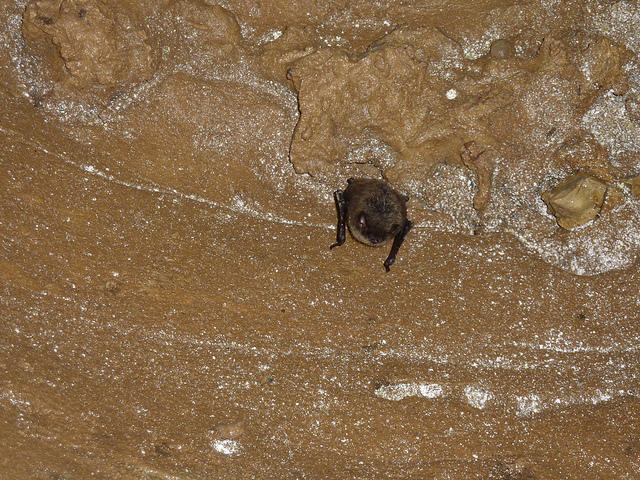
Section Branding
Header Content
Congress Funds White-Nose Syndrome Fight
Primary Content

Georgia biologists are praising the allocation of federal money to study and monitor a disease devastating bats around the country.
Congress is directing the U.S. Fish and Wildlife Service to spend $4 million to beef up research on white-nose syndrome, and Georgia and other southeastern states could see a chunk of that money as biologists work to stop the disease’s spread southward from New England, where it has killed hundreds of thousands of bats important for insect control and as food for larger animals.
The syndrome has not arrived in Georgia but has been found in Tennessee and North Carolina.
Trina Morris, a wildlife biologist with the Georgia Department of Natural Resources, said it is likely just a matter of time before bats in Georgia are infected.
“We don’t really think there’s any way we can stop white-nose syndrome,” Morris said, “but the more we learn about the disease and how it’s spreading, we can hopefully help the bats and understand what their response might be and what our responsibility is as far as whether we’re spreading it or not.”
Morris welcomed the federal funding because she said there are still many things biologists need to know about the disease.
“There are a lot of questions about the disease itself and how the fungus actually kills the bats and how they respond to the fungus and how they might be able to be resistant,” Morris said.
Tennessee researchers confirmed this fall that a fungus causes the syndrome.
Tags: Department of Natural Resources, Joshua Stewart, white-nose syndrome, bats, Trina Morris
